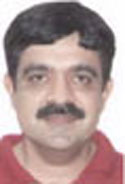
By Yoginder Sikand, New Age Islam
Although we weren’t Christians, in my childhood Jesus played a significant role in our lives. On Easter, we’d get Easter eggs, and on Christmas Eve, people would come to our home singing carols. Among the schools I studied in, two were Christian, and so was my college.
There’s much that I’m indebted to Jesus and his followers for. For one thing, I would not be what I am now if it weren’t for the Christian-run educational institutions I studied in. But I owe much more than this to them. I hesitate to use the term for fear of sounding holier-than-thou, but what I think I could call my ‘inner journey’, too, wouldn’t have unfolded the way it has but for them.
All religions, I’ve discovered, can be interpreted in multiple ways, for good and for ill. Christianity, like other religions, has been interpreted in order to seek to legitimize many misdeeds. But, at the same time, like other religions, it has also been interpreted to promote a great deal of goodness.
Jesus taught unconditional love, and I’ve experienced reflections of that love in numerous Christians who’ve played a crucial role in my life. There was Ms. Martin, my favourite teacher in primary school, and Ms. Noreen, a school matron who doted on me. There were the nuns at a home in Delhi for abandoned people in the last stages of their lives, whom I was blessed to meet, and the Catholic brothers at a home for leprosy-affected people that I had the good fortune to visit. There was the Christian priest whom I had never met before but yet who warmly welcomed me to his home and hosted me for a couple of days. There was the Protestant pastor who allowed me to stay in his institute for several months when I felt I had almost nowhere else to go. There’s the man I met who, inspired by Jesus, runs a home for some 400 people, who‘ve lost their minds and for infants abandoned by their parents. There’s the Jesuit I know who went on to spend years serving the needy in one of the most violence-torn parts of the world, a country where Christians face extreme persecution, and another Jesuit, past 80, who regularly emails me his blessings. There are the ever-smiling nuns at one of my favourite bookshops-it’s run by the Catholic Church. There’s Kitty Chappell, an American great-grandmother deeply in love with Jesus, whom I haven’t met but whom I’m in regular email touch with. Her amazing story, recounted in her Sins of a Father: Forgiving the Unforgiveable, taught me how forgiving others is good for our own selves, liberating us from the burden of hate.
I’m grateful for the kindness of all these many lovers of Jesus. Through their lives, they’ve taught me many precious things about the art of living.
And then there are scores of followers of Jesus whom I have never met but still have benefitted from. These are the many Christian writers I’ve read—men and women who’ve written beautiful books, from a spiritual perspective, on a range of issues, from prayer, self-help and emotional challenges to faith and science, environmental protection, gender relations, peace and interfaith harmony. Even though I may not agree with all of their theology, my thinking on a whole host of issues has been deeply influenced by their works.
Not long ago, I had the good fortune of meeting an amazing man. He was born in a Christian family, and he even became a priest. But as he continued his spiritual journey, going beyond the confines of inherited tradition, he was led to realize that God far transcends religions as conventionally understood—as sets of dogmas and rituals. God, he now understood, ‘resides’ not just ‘up there’, ‘in Heaven’, but ‘in here’, too—in our very selves, being manifested in every particle of the universe, including in every person, no matter what religion she or he claims to follow. The truths he spoke of were the same that mystics across space and time, transcending apparent divisions of religion and community, have always taught. I had read about this before, but being in the presence of someone who had more than just a theoretical understanding of it was entirely different.
For me, that encounter was a wonderful liberation, transforming many of my views about religion and God. Finding God in every being, in every single heart—imagine how wonderful it would be for us, as individuals and for humanity as a whole, if we could truly realize this truth! Could we ever hate anyone if we knew that the same God who lives in us, lives in him or her, too? Could we ever despise communities and religions other than the ones we might identify with if we were aware that God is as much present in them as in ourselves?
I’ve personally witnessed rays of the love that Jesus embodied through all these many of his followers, who’ve touched my life in wonderful ways. Many thanks to them all!




 Moderate Islamist here
Moderate Islamist here


0 comments:
Post a Comment